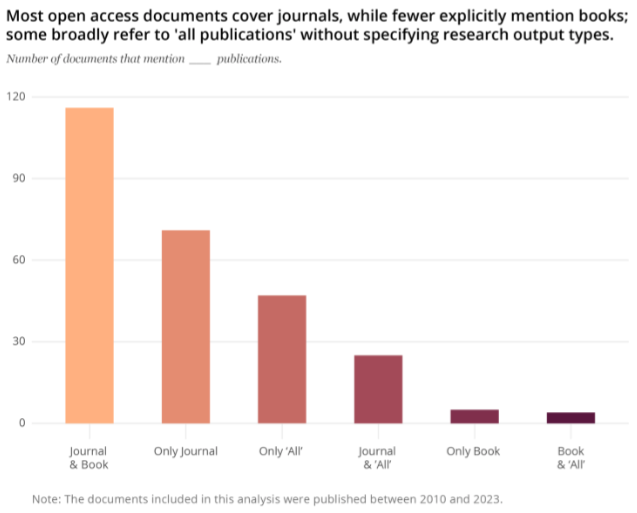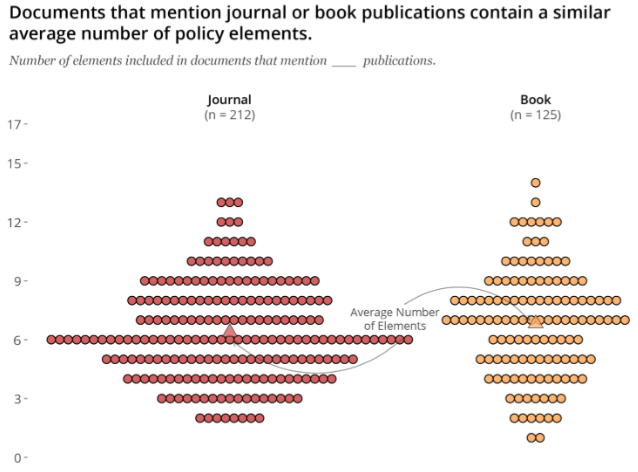Prominence
While most open access policies cover journals, only a subset explicitly include books within their scope, suggesting an uneven policy landscape that could hinder the adoption and impact of open access book publishing. This situation may create challenges for authors, institutions, and publishers, such as a lack of policy guidance, funding, and incentives for open access books. It is worth noting that in our analysis, we came across several policies that broadly referred to open access for ‘all publications’ without specifying the types of research outputs covered. This lack of specificity may lead to ambiguity, potentially hindering effective implementation and achievement of policies’ intended goals. Clearly defining the scope of research outputs is crucial for providing the necessary guidance to authors.

Complexity
Although open access policies more commonly included journal publications, when policy documents explicitly mentioned book publications, a similar number of policy elements were specified. This suggests that policy makers apply a comparable level of detail and specificity to both journal and book publications. This is a positive sign, as it indicates that open access book policies are being developed with comparable thoughtfulness and comprehensiveness, rather than being treated as an afterthought or a less important aspect of open access. This approach can facilitate policy alignment, address the unique challenges of book publishing, and support diverse research outputs.

Flexibility
Open access book policies often have less stringent licensing requirements compared to journal policies, allowing for more flexibility in reuse and adaptation. This flexibility, such as allowing CC BY-NC and CC BY-NC-ND licences, can better align with the norms and practices of certain disciplines, particularly in the humanities and social sciences, increasing acceptance and adoption of open access book publishing. Furthermore, accommodating different disciplinary norms and practices may create opportunities for policy harmonisation across funders, institutions, and countries. This leads to more inclusive and adaptable open access policies, fostering bibliodiversity. The analysis reveals notable differences between open access book and journal policies in prominence, complexity, and flexibility. To support the growth and impact of open access book publishing, policymakers, funders, and institutions can take different approaches to develop clear, comprehensive, and adaptable policies by following the best practices described in the related articles of this toolkit.

This article is made available under a Creative Commons Attribution 4.0 International License.
